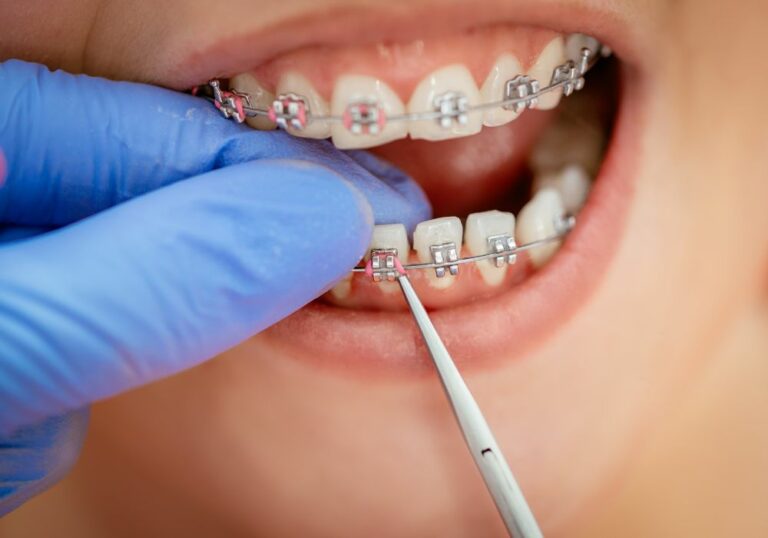If you’ve ever had your wisdom teeth removed, you know it’s not the most pleasant experience. However, some people have it worse than others. There are certain factors that can make wisdom teeth removal more difficult and painful. In this article, we’ll explore when wisdom teeth removal is the worst and what you can do to make the process as smooth as possible.
One of the biggest factors that can make wisdom teeth removal more difficult is the position of the teeth. If your wisdom teeth are impacted, meaning they are stuck in your jawbone or gums and cannot emerge properly, the extraction process can be more complicated and painful. Additionally, if your wisdom teeth are located close to nerves or other important structures in your mouth, the risk of complications and pain increases.
Another factor that can impact the difficulty of wisdom teeth removal is your age. Generally, the older you are, the more difficult the extraction process can be. This is because the roots of your wisdom teeth become longer and more firmly anchored in your jawbone as you age, making them harder to remove. Additionally, older patients may have other health issues that can complicate the extraction process and increase the risk of complications.
Understanding Wisdom Teeth
What Are Wisdom Teeth?
Wisdom teeth are the third molars located at the back of your mouth. Most people have four wisdom teeth, but some may have fewer or even none at all. These teeth usually emerge between the ages of 17 and 25, although they can appear earlier or later.
Why Do We Have Wisdom Teeth?
Wisdom teeth were once an essential part of our ancestors’ diets, which consisted of tough and coarse foods like roots, nuts, and meat. These foods required more chewing power, which is why our ancestors evolved an extra set of molars to help them grind their food.
However, as our diets evolved, our jaws became smaller, leaving little room for the wisdom teeth to grow properly. As a result, wisdom teeth often become impacted, meaning they are unable to emerge from the gum line fully. This can cause pain, swelling, infection, and other dental problems, which is why many people need to have their wisdom teeth removed.
In summary, wisdom teeth are an evolutionary remnant that served a purpose in our ancestors’ diets but are now more of a hindrance than a help.
Wisdom Teeth Removal Process

If you’re experiencing pain or discomfort in your mouth due to wisdom teeth, you may need to have them removed. Here’s what you can expect during the wisdom teeth removal process.
Pre-Surgery Examination
Before the surgery, your dentist will examine your mouth to determine the best course of action. They may take X-rays to get a better look at your teeth and determine the position of your wisdom teeth. They will also review your medical history to ensure that you are healthy enough for the surgery.
The Surgery Procedure
During the surgery, you will be given anesthesia to numb the area around your wisdom teeth. Depending on the position of your teeth, your dentist may need to make incisions in your gums to access them. They will then remove the teeth and stitch up the incisions if necessary.
The length of the surgery will depend on how many teeth need to be removed and the complexity of the procedure. Most wisdom teeth extractions take less than an hour.
Post-Surgery Care
After the surgery, you will need to rest for a few days to allow your mouth to heal. Your dentist will provide you with instructions on how to care for your mouth, including how to clean the extraction site and what foods to eat.
You may experience some swelling and discomfort after the surgery, but this should subside within a few days. Your dentist may prescribe pain medication to help manage any discomfort.
It’s important to follow your dentist’s instructions closely to ensure a smooth recovery. Avoid smoking, using straws, and engaging in strenuous activity for the first few days after the surgery. Be sure to attend any follow-up appointments with your dentist to ensure that your mouth is healing properly.
When is Wisdom Teeth Removal the Worst?
If you’re facing wisdom teeth removal, you may be wondering when it’s going to be the worst. While the procedure is generally straightforward and safe, there are some factors that can make it more difficult and uncomfortable. Here are some situations that may make wisdom teeth removal the worst for you.
Age Factor
The age at which you have your wisdom teeth removed can play a role in how difficult the procedure is and how long it takes to recover. Younger patients tend to have an easier time with wisdom teeth removal, as their teeth and bones are still developing and are more responsive to treatment. As you get older, your teeth and bones become harder and denser, which can make it more difficult to remove wisdom teeth.
Impacted Wisdom Teeth
If your wisdom teeth are impacted, meaning they are partially or fully covered by gum tissue or bone, the removal process can be more complex and painful. In some cases, the surgeon may need to make an incision in the gum tissue or remove some of the surrounding bone to access the tooth. This can lead to more swelling, discomfort, and a longer recovery time.
Post-Surgery Complications
After wisdom teeth removal, there is always a risk of complications such as infection, dry socket, and nerve damage. If you experience any of these complications, your recovery process can be more difficult and painful. Infection can lead to swelling, pain, and fever, while dry socket can cause intense pain and delay healing. Nerve damage can cause numbness, tingling, or even loss of sensation in your lips, tongue, or cheeks.
In conclusion, wisdom teeth removal can be a challenging and uncomfortable procedure, especially if you fall into one of the categories mentioned above. However, with proper preparation and care, you can minimize the risks and make your recovery as smooth as possible.
Preventing Wisdom Teeth Removal Complications

When it comes to wisdom teeth removal, complications can occur. However, there are steps you can take to help prevent these complications. Proper oral hygiene and regular dental check-ups can go a long way in preventing complications.
Proper Oral Hygiene
Practicing proper oral hygiene is crucial in preventing complications from wisdom teeth removal. It is important to keep the area clean to prevent infections and promote healing. Here are some tips for proper oral hygiene:
- Brush your teeth twice a day with a soft-bristled toothbrush and fluoride toothpaste.
- Floss daily to remove food particles and plaque from between your teeth and under the gumline.
- Rinse your mouth with an antiseptic mouthwash to kill bacteria and freshen breath.
- Avoid smoking or using tobacco products, as they can delay healing and increase the risk of infection.
Regular Dental Check-Ups
Regular dental check-ups are also important in preventing complications from wisdom teeth removal. Your dentist can monitor the growth and development of your wisdom teeth and recommend removal if necessary. They can also identify any potential problems and provide treatment before they become more serious.
During your dental check-up, your dentist may take x-rays to check the position of your wisdom teeth and identify any potential problems. They may also recommend a cleaning to remove any plaque or tartar buildup that can contribute to gum disease and tooth decay.
In conclusion, taking care of your oral health through proper oral hygiene and regular dental check-ups can help prevent complications from wisdom teeth removal. By following these simple steps, you can ensure a smoother and easier recovery after your wisdom teeth are removed.
Alternatives to Wisdom Teeth Removal
If you have been told that you need to have your wisdom teeth removed, you may be wondering if there are any alternatives to this procedure. Here are some options to consider:
Observation
If your wisdom teeth are not causing any problems, your dentist may recommend simply keeping an eye on them. Regular dental checkups can help monitor the growth and development of your wisdom teeth and detect any potential problems before they become serious.
Coronectomy
Coronectomy is a surgical procedure that involves removing only the crown of a wisdom tooth and leaving the roots in place. This procedure is typically recommended for patients who have a high risk of nerve damage or other complications from a traditional wisdom tooth extraction.
During a coronectomy, your dentist or oral surgeon will make a small incision in your gum tissue and carefully remove the crown of the tooth. The roots will be left in place to prevent damage to the nerves and other structures in your jaw.
After the procedure, you may experience some discomfort and swelling, but these symptoms should subside within a few days. Your dentist will provide you with detailed instructions for post-operative care to help minimize any discomfort and promote healing.
While coronectomy can be an effective alternative to traditional wisdom tooth extraction, it may not be suitable for everyone. Your dentist or oral surgeon can help you determine if this procedure is right for you based on your individual needs and circumstances.
Overall, if you are considering alternatives to wisdom teeth removal, it is important to discuss your options with your dentist or oral surgeon. They can help you weigh the pros and cons of each approach and choose the best course of action for your specific situation.
Frequently Asked Questions
How long does the worst pain last after wisdom teeth removal?
The worst pain after wisdom teeth removal usually lasts for the first three to four days. During this time, you may experience swelling and discomfort in your jaw and mouth. However, the pain should gradually subside after the first few days.
What can I do to manage the pain after wisdom teeth removal?
To manage pain after wisdom teeth removal, you can take over-the-counter pain relievers such as ibuprofen or acetaminophen. Applying an ice pack to the affected area can also help reduce swelling and discomfort. Additionally, avoid smoking and using straws, as the sucking motion can dislodge the blood clot and delay healing.
What are some common complications after wisdom teeth removal?
Common complications after wisdom teeth removal include dry socket, infection, and nerve damage. Dry socket occurs when the blood clot that forms after the extraction becomes dislodged or dissolves too early, leaving the bone and nerves exposed. Infection can occur if bacteria enter the socket. Nerve damage can cause numbness, tingling, or a loss of sensation in the tongue, lips, or chin.
How long does it take to recover from wisdom teeth removal?
Recovery time after wisdom teeth removal varies depending on the individual. Generally, it takes about one to two weeks to fully recover. During this time, you should follow your dentist’s instructions for care and avoid strenuous activity.
When can I start eating solid foods after wisdom teeth removal?
You should avoid solid foods for the first few days after wisdom teeth removal. Instead, stick to soft, cool foods such as yogurt, smoothies, and soup. After a few days, you can gradually introduce solid foods back into your diet. However, avoid hard, crunchy, or sticky foods that can irritate the extraction site.
What are some tips for a fast recovery after wisdom teeth removal?
To speed up your recovery after wisdom teeth removal, follow your dentist’s instructions for care. This may include taking pain medication, applying ice packs, and avoiding strenuous activity. Additionally, maintain good oral hygiene by gently brushing your teeth and rinsing your mouth with salt water. Finally, eat a healthy diet and stay hydrated to promote healing.







